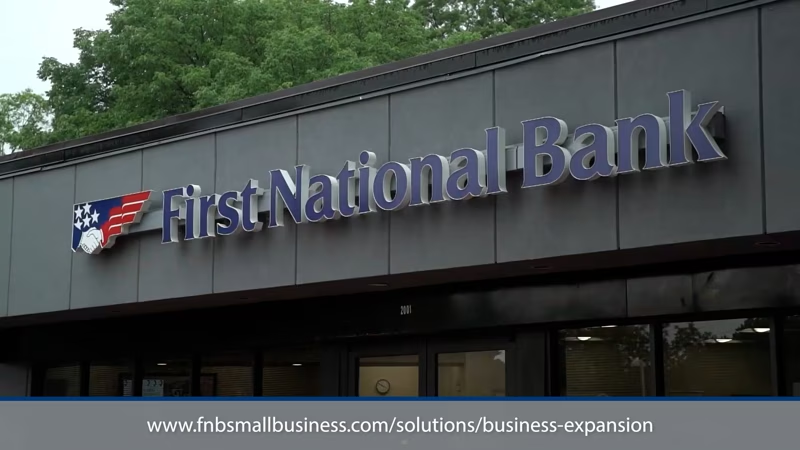SBA loans can be a powerful tool when you’re ready to grow your business. By financing 90% or more of your expansion, you can retain essential capital in your day-to-day. Our 10- to 25-year term options help keep your monthly payments low and our 3- and 5-year fixed rate options help you manage risk that comes from rate volatility.
An SBA 7(a) loan allows you to finance real estate, a like or complementary business, leasehold improvements, additional FF&E or machinery, and working capital to help manage transition costs and operations – all bundled in one long-term loan.
Solutions
- Open additional locations
- Acquire a larger building
- Expand your current facility
- Acquire a like or complimentary business
Benefits
- Lower equity requirements & longer terms
- Quarterly variable, 3 or 5-year fixed rate options
- No loan covenants
- One loan for many business needs
FAQs
If you’re ready to turn your expansion dreams into reality, check out these commonly asked questions to get started!
- What type of loan is used to finance a business expansion transaction?
Depending on the nature of the business, either an SBA 7(a) loan, an SBA 504 Loan, or an SBA Express Loan can be used. Sometimes two or more of these products can be used in combination to best meet your needs.
- How much cash do I need to put down as part of the expansion?
At FNB Small Business Finance, we would normally require 5% - 10% of the Total Project Cost of an expansion as an equity injection. However, every project is different, and your required equity injection could vary. We encourage you to find your nearest Business Development Officer to discuss your plans and structure a financing package that best meets your individual needs.
- Can I use borrowed money for my required equity injection?
Most often, we see buyers wanting to use a Home Equity Line of Credit (HELOC) for this purpose. SBA rules now say this is eligible as long as the borrower has sufficient outside income, not associated with the business being purchased (including proposed salary), to support the payments on the borrowed money.
- What types of expansions do you normally fund?
- Relocation to a larger location that you plan to purchase or rent.
- Addition and/or improvements to an existing facility
- Opening additional new location
- Buying a business in the same or complimentary industry
- Can involve purchasing owner-occupied real estate for your business of expanding to a leased location.
- With an SBA 7(a) loan, proceeds can be used to purchase owner-occupied real estate and improvements, Leasehold improvements to a leased location, additional furniture, equipment and/or machinery, working capital, and loan closing costs.
- What interest rate structures do you offer?
For SBA 7(a) loans, we offer all borrowers a quarterly variable, 3-year fixed, or 5-year fixed interest rate structure and let you choose the option you feel works best for you.
For SBA 504 loans, on the 1st Trust Loan, we also offer quarterly variable, 3-year fixed, or 5-year fixed structures. For the portion funded by the Certified Development Company (CDC), which would normally be 40% of the total financing, the interest rate is fixed for 25 years.
- How long is the term of the loan?
- With an SBA 7(a) loan, the term can be up to 25 years, depending on the use of loan proceeds. SBA 7(a) loans with a term of 15 years or longer have a 5-3-1 prepayment penalty per the SBA rules.
- With an SBA 504 loan, we structure the 1st Trust Loan with a 25-year term and a 5-4-3-2-1 prepayment penalty in the first five years only. The 40% funded by the Certified Development Company (CDC) is 25 years as well, and has prepayment penalties for the first 10 years.
For expansion to a new leased location, the term of the loan will be 10 years with no prepayment penalty.
For an expansion loan for real estate acquisition:
- Do you require a business plan and projections?
On an expansion loan, our underwriting includes analysis of both the historic operations of your business and the projections for the first two years once the project is complete. This is required by the SBA. We will need projections for the first two years, first year by month with annual totals, and the second year annualized. The business plan provided is our guide on how the results of the projections will be achieved.
Pre-Application Checklist:
When you’re ready to get started, please reach out to one of our Business Development Officers. We’ll ask you for the following documents in our initial call.
- Estimated project costs
- Three years of tax returns, interim financial statements on existing business(es) including Income Statement, Balance Sheet, Debt Schedule
- Projected Income statement post expansion – first two years
- Three years personal tax returns – all owners 20%+
- Personal Financial Statement – all owners 20%+








